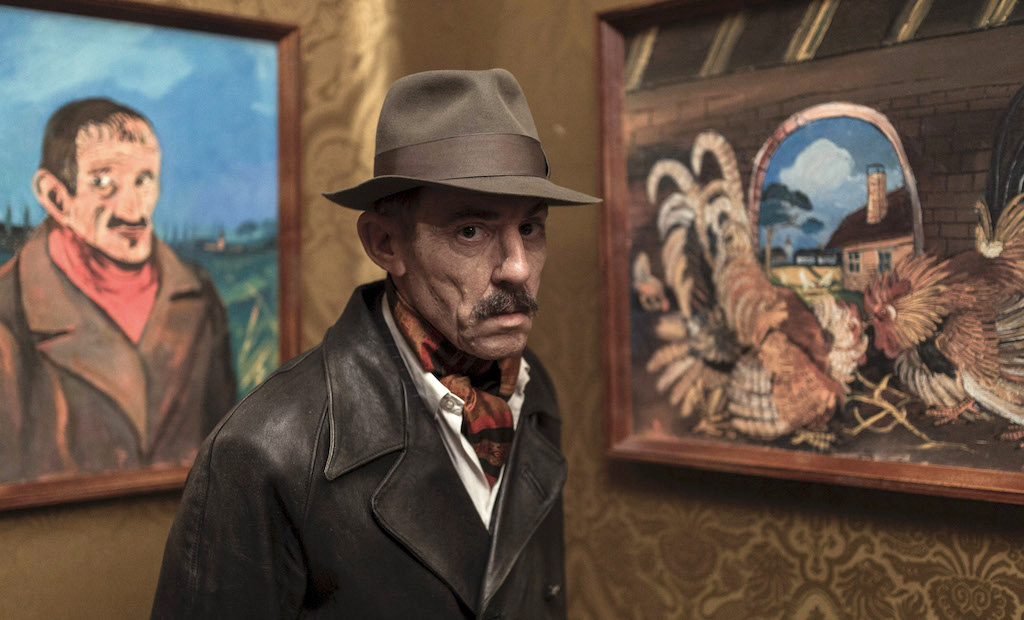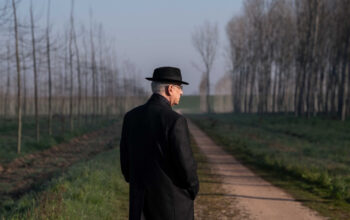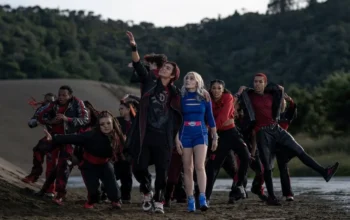“We wanted to show him as a human being”: An interview with Hidden Away actor Elio Germano

In Hidden Away (Volevo Nascondermi), actor Elio Germano went through a complex series of preparations in order to play the real life Italian painter Antonio Ligabue. Diagnosed with what would now be classed as a learning disorder, the real life Ligabue was gruff and intense, and didn’t achieve much acclaim as an artist until he was in his forties. We sat down with Germano – who won the prize for Best Actor at this year’s festival – to talk about Ligabue and the biopic which has premiered in competition.
How did you go about creating your characterisation of Antonio Ligabue?
It was a very strange, a very peculiar character, and when you do a film about such a character, you run two risks. The first is that you make this character look normal – so a film is possible, and that people can relate to him. The other risk is that you exaggerate and make a character that’s not credible anymore. We worked to find the best possible way, and we worked with these prosthetics, because we wanted to show a character that was revolting, disturbing, but who has a strong and intense soul to be discovered. So people are faced with this disturbing character, but they have to make the effort to discover his soul. And then we did research, we worked with the people who sincerely knew him during his life, and not those who said they knew him because they could earn money with this. We worked with a ten-minute video of him that you can find on the internet [the only known footage of Ligabue]. We tried to create images that were as close as possible to him, to his life. We didn’t want to reduce him to one dimension. We didn’t just want to show the pity or the abuse that he went though, or his unhappiness. We really wanted to show him as a human being, with these dramatic features, but also his joy. We wanted to let him talk about himself through this film, so this shouldn’t have been a film about him, it should be like it’s his film – about himself, and about his mystery.
How true to life was the script?
The script was written like an open script, and we shot some scenes that didn’t make it into the film, and we invented other things, because we just let this character live freely in an environment without thinking too much about his story. We tried to keep being curious, and not to let history be too present – we wanted to keep this mystery about the character, and so we let go without even thinking about what the end results would have been. The work on change has been the work on the idea of madness, because this character is considered to be mad. But he was actually a weird person – it was diversity that was his madness. And I think that maybe he was much healthier and more lucid than the monsters around him, because he lived in the era of monsters, which was the Second World War. The first time he went to the psychiatric hospital was because he didn’t want to do what Fascism said he had to do, like finding a job, or finding a home. He didn’t want to do that, so he was sent to the hospital. So I asked myself – who are the crazy people in all of this? And that’s the work we did on change, and we left the rest to mystery.
You said you spoke to people who knew him. How useful was that information – was there anything you learnt that felt like the key to understanding him both as the person he was, and the character you had to play?
There are many anecdotes and crazy things, and we collected so much information – every time we found something interesting, we really wanted to put it in the film. This person was so free, and allowed himself to do so many things, that he practically did everything he would ever think about. For example, people used to allow him to sleep in the stalls where they keep their animals, and he used to also keep his painting supplies in there, and one day there was a storm, and it was raining, and he came on his motorbike – in the storm – just to tell them that he wouldn’t come and sleep there that night because the weather was bad. He used to do things like that. He was very human, and also very affectionate.
Do you think that the way Ligabue – with his antisocial tendencies and learning disability – was treated in Italy in the early 1900s would reflect the way that Italy would treat such a uniquely talented person today?
We talk about reflecting because it’s like a game of mirrors. It can be the same, or similar, but also the opposite. At that time, Italy was a poor country, but there’s still the ability to welcome people. It was a rural country, and the circular economy – the concept of garbage, of leftovers – it didn’t exist at that time. It was invented with the industrial economy. In those years, Italy was still a rural country – the industrial economy developed only after the second world war and this changed the behaviour of people, because people are nowadays considered according to the profit they can generate, and if somebody cannot generate profit – they’re garbage, they’re leftovers, so there are different ways of welcoming people. People used to mock him, to laugh at him, but they weren’t surprised when he was driving a motorbike. They considered him – even with his diversity, and today, what is considered diverse is marginalised, is enclosed in ghettos. This is the change that he went through during his life, and when he became famous, the type of public that was around him changed. They were not the peasants anymore – they were the people who were interested in buying and selling his art – rich families who could afford it.
What parts of Ligabue’s persona were the hardest to bring to life?
We were interested in this story that this culture has to tell because there are so many references to the life and the world we live in today. This character was an outcast. He was a migrant who couldn’t speak the language. He also represents diversity. And the way this person was welcomed and treated in Italy at that time maybe also reflects Italy as it is today. Also there is another story that goes beyond time, and that is being yourself and not being influenced by what other people think about you. Because this is the story of a man who decided to stay the same, even if he was well aware of the fact that other people didn’t like him, or were laughing at him. We have to think about this when we are in a world where we make so much effort to be liked by other people. Maybe this kind of life is, for us, a lesson on how to be happy – a way to be happy. And a way to be free, of course.
Oliver Johnston
Hidden Away (Volevo Nascondermi) does not have a UK release date yet. Read our review here.
Read more reviews from our Berlin Film Festival 2020 coverage here.
For further information about the event visit the Berlin Film Festival website here.
Watch a clip for Hidden Away (Volevo Nascondermi) here:
























Facebook
Twitter
Instagram
YouTube
RSS